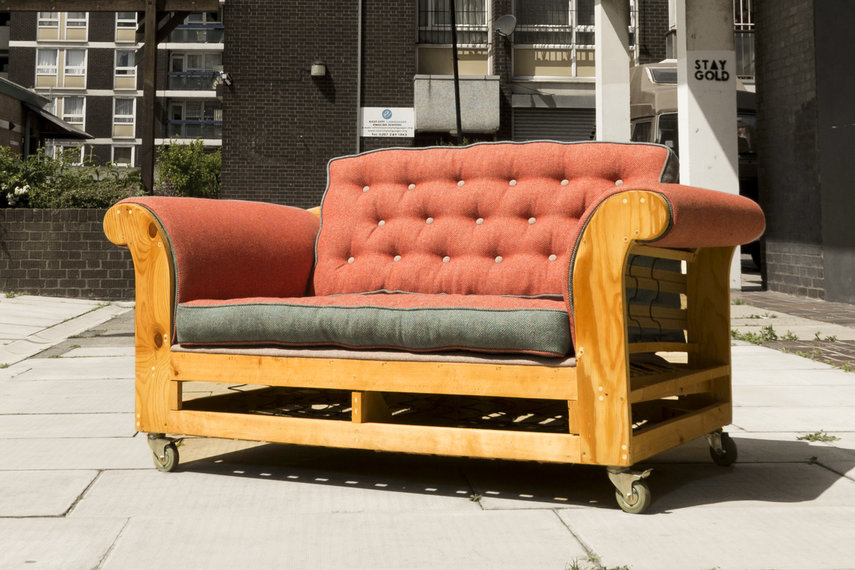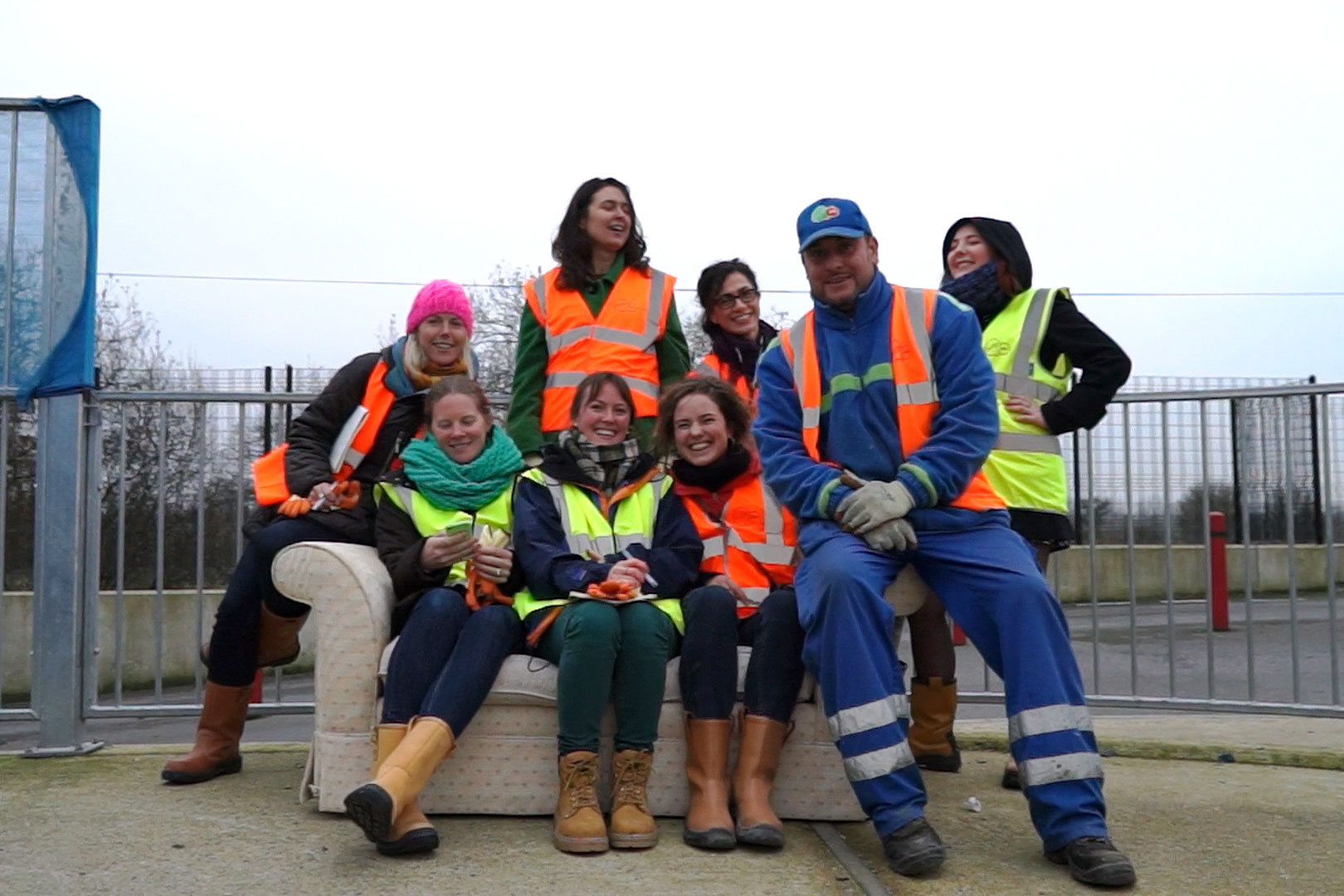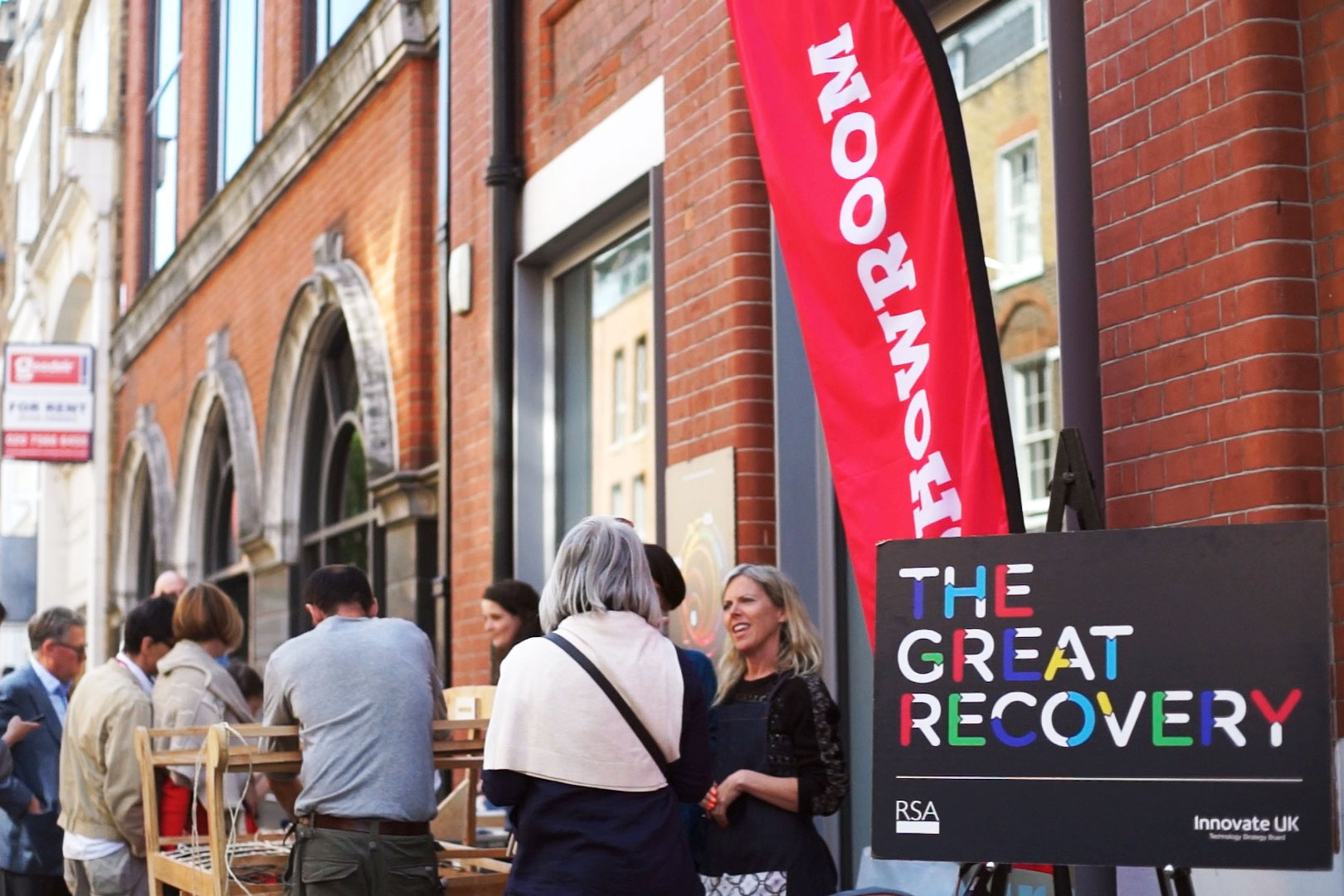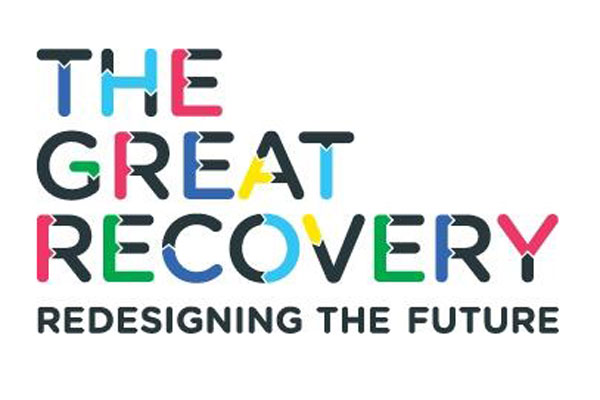The Great Recovery's Design Residency with SUEZ has seen four designers investigate the challenges of 'bulky waste'. In the lead up to the release of their findings on September 9th, Lucy Chamberlin reflects on the impact of bulky waste, the work of the Residency and explains how you can get involved.
Everyone has a story about bulky waste. The sofa in the garden, the mattress at the bus stop, the fridge in the parking lot.
A quick survey of researchers and staff at the RSA uncovered a plethora of anecdotes, mostly told with enthusiastic exasperation. Matthew suffered from a large sofa blocking his hallway that the landlord had promised but apparently 'forgotten' to remove. Jonathan was plagued by guilt in having to take a child's mattress to the dump which was almost-new, apart from a small stain which meant that the local charity wouldn't accept it.

And these problems are not new, it seems. In a 1968 lecture given at the RSA, FLD Flintoff, said:
'There are signs of a much more significant change in the fundamental character of refuse than is indicated by the analyses and forecasts. This is a steady increase in what is usually called bulky waste. It comprises all those items which will not go inside a dustbin: packaging, old washing machines, refrigerators, pianos and motor cars. ...Because none of these items individually is of sufficient value to interest a dealer, and because local authority services have always been tailored to refuse which fits inside a British Standard dustbin, the householder has sometimes been left without a lawful method of getting rid of unwanted articles of this sort. When a proper outlet is denied for either refuse or scrap, it gets into the wrong place and becomes litter. That is why our verges are littered with motor cars, our woods with washing machines, and small boats on the Thames are menaced by floating debris. Bulky refuse is a fairly new problem, but it is growing fast.'
And grow fast it has. In the UK we now produce around 1.6million tonnes of this large-item waste stream every year, and most of it still ends up buried in landfill or burnt in an incinerator.
10 days, 4 designers, 1 mission

In September, the Great Recovery will launch a report, 'Rearranging the Furniture', about our design residency project run in partnership with SUEZ, a waste and recycling company, and focused on furniture waste. You may have already watched the Survivor Sofa Story, read our blog about the Clerkenwell Design Festival or seen the project on twitter (#survivorsofa).
The brief was to conduct an exploratory, observation-based 'residency' with four designers over ten days, gathering insights and learning from experts whilst at the same time providing ideas on how product or indeed system redesign could enable more furniture to be reused rather than scrapped. It enabled the designers to learn valuable lessons about the end-of-life destinations of some of the products they were creating, and to provide some valuable design thinking and ideation to the processes of waste disposal that they witnessed.
Over the ten days, we visited a community recycling centre (formerly known as a civic amenity site or 'the tip'!) in Leatherhead, various sorting and retail outlets of the Surrey Reuse Network, and went behind the scenes at IKEA. We spoke to experts from the national Furniture Re-use Network, the SKA rating programme for commercial interiors, and the pioneering waste team at Warwickshire County Council. And we also conducted a 'tear-down' exercise on a high street brand sofa that we fished out of the landfill skip (in great condition but missing its fire label and therefore not re-sellable by the reuse charities). Finally, we convened a roundtable discussion between designers, waste managers and other stakeholders at Fab Lab London – closing the loop at least conversationally on our furniture waste.
As you will see from the report, the project has not provided a silver bullet or final solution to the problems of bulky waste. What it has done, however, is to draw attention to and explore these issues from a new perspective, to engage with a new audience, and to provide a very practical expose of the untapped value in our living rooms.
From small sofas...

And the project didn't stop at the 10-day residency. It was picked up by Camira, a UK-based textile manufacturer who wanted to develop some new fabric for our ex-landfill sofa using waste offcuts from their own suppliers. The next stop was Clerkenwell Design Week, where we got members of the public making buttons for the sofa and talked to them about the challenges of designing furniture for a more circular economy.
The sofa is now on display at RSA House (please come and have a look and take a seat!) and will form part of our display at Fab Lab London during London Design Festival before being loaned to Camira for an exhibition in the run-up to Christmas.
Our sofa story film was also picked up by the Community Channel and has been re-edited for release on national TV.... Keep an eye out on the website for more news on this, and some companion blogs to the report.
Meanwhile, some dates for your diary:
- 9th September: Online launch of Rearranging the Furniture report
- 16th September: Print launch of report and presentation by RSA Director of Circular Economy, Sophie Thomas, at RWM show, Birmingham NEC
- Until 18th September: Survivor Sofa displayed on ground floor of RSA House
- 25th September: London Design Festival re-upholstery workshop and design residency Q&A panel at Fab Lab London
- October – December: Survivor Sofa display at Camira showrooms, Clerkenwell
Finally, how can we as consumers and citizens do our bit to ensure that our furniture has a long life of use and re-use? Find out in our next post '7 things we can do to keep our sofas out of landfill'.
You can follow us @Great_Recovery
To correct this error:
- Ensure that you have a valid license file for the site configuration.
- Store the license file in the application directory.
Related articles
-
Blog: Maker Walk Bristol - Mapping Urban Manufacturing
Jude Sherry
Jude Sherry FRSA is looking into what capacity does Bristol have to produce the products the city needs?
-
Blog: Recycling - the USB plug for a circular economy
Sandy Roger
The standardised USB plug removes confusion, waste and inefficiency in our IT systems; Sandy Rodger argues that standardising our recycling processes would do the same for end of life material recovery.
-
Blog: Why is the circular economy transformational (and not just a smaller elephant?)
Sandy Rodger
Sandy Rodger FRSA explains why Circular Economy is a force for creating a new, transformational, conversation about resources - and not just a smaller elephant.



Join the discussion
Comments
Please login to post a comment or reply
Don't have an account? Click here to register.
Remove the unwanted office resources and set up a home office furniture. This unwanted office furniture can be recycled by molding the old into new one. Second-hand office furniture UK can be a great way of securing some big savings. Also the office furniture recycling surrey can be done by molding the old used furniture into a new one which can help to save more money. Even the other office resources as cds can also be recycled and utilized.